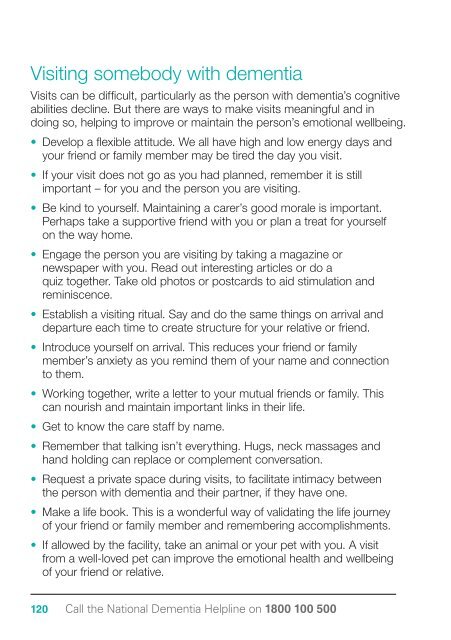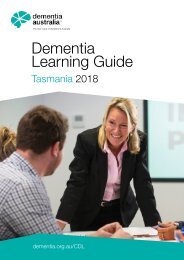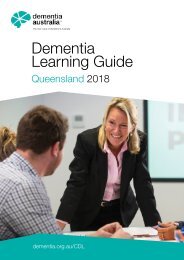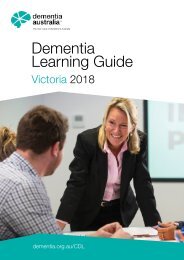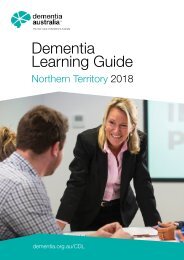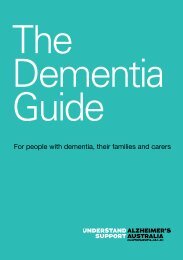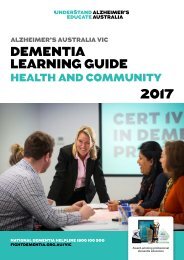Dementia Australia | The Dementia Guide
The Guide will also be used by the family and friends of someone with dementia, as it will contain information for anyone taking on a caring role. It will help people to understand more about dementia and the emotional impact of a diagnosis, the available drug treatments, and support and services that are available. It will include information about living well with dementia and about making plans for the future.
The Guide will also be used by the family and friends of someone with dementia, as it will contain information for anyone taking on a caring role. It will help people to understand more about dementia and the emotional impact of a diagnosis, the available drug treatments, and support and services that are available. It will include information about living well with dementia and about making plans for the future.
You also want an ePaper? Increase the reach of your titles
YUMPU automatically turns print PDFs into web optimized ePapers that Google loves.
Visiting somebody with dementia<br />
Visits can be difficult, particularly as the person with dementia’s cognitive<br />
abilities decline. But there are ways to make visits meaningful and in<br />
doing so, helping to improve or maintain the person’s emotional wellbeing.<br />
• Develop a flexible attitude. We all have high and low energy days and<br />
your friend or family member may be tired the day you visit.<br />
• If your visit does not go as you had planned, remember it is still<br />
important – for you and the person you are visiting.<br />
• Be kind to yourself. Maintaining a carer’s good morale is important.<br />
Perhaps take a supportive friend with you or plan a treat for yourself<br />
on the way home.<br />
• Engage the person you are visiting by taking a magazine or<br />
newspaper with you. Read out interesting articles or do a<br />
quiz together. Take old photos or postcards to aid stimulation and<br />
reminiscence.<br />
• Establish a visiting ritual. Say and do the same things on arrival and<br />
departure each time to create structure for your relative or friend.<br />
• Introduce yourself on arrival. This reduces your friend or family<br />
member’s anxiety as you remind them of your name and connection<br />
to them.<br />
• Working together, write a letter to your mutual friends or family. This<br />
can nourish and maintain important links in their life.<br />
• Get to know the care staff by name.<br />
• Remember that talking isn’t everything. Hugs, neck massages and<br />
hand holding can replace or complement conversation.<br />
• Request a private space during visits, to facilitate intimacy between<br />
the person with dementia and their partner, if they have one.<br />
• Make a life book. This is a wonderful way of validating the life journey<br />
of your friend or family member and remembering accomplishments.<br />
• If allowed by the facility, take an animal or your pet with you. A visit<br />
from a well-loved pet can improve the emotional health and wellbeing<br />
of your friend or relative.<br />
120 Call the National <strong>Dementia</strong> Helpline on 1800 100 500


